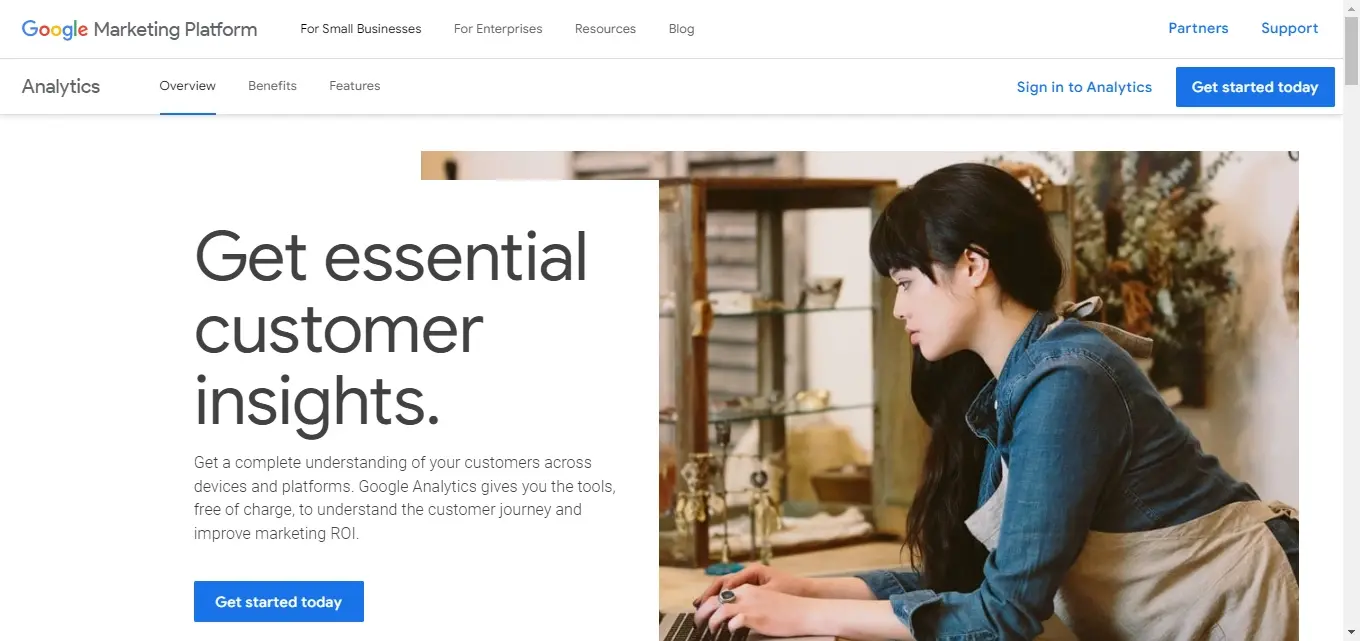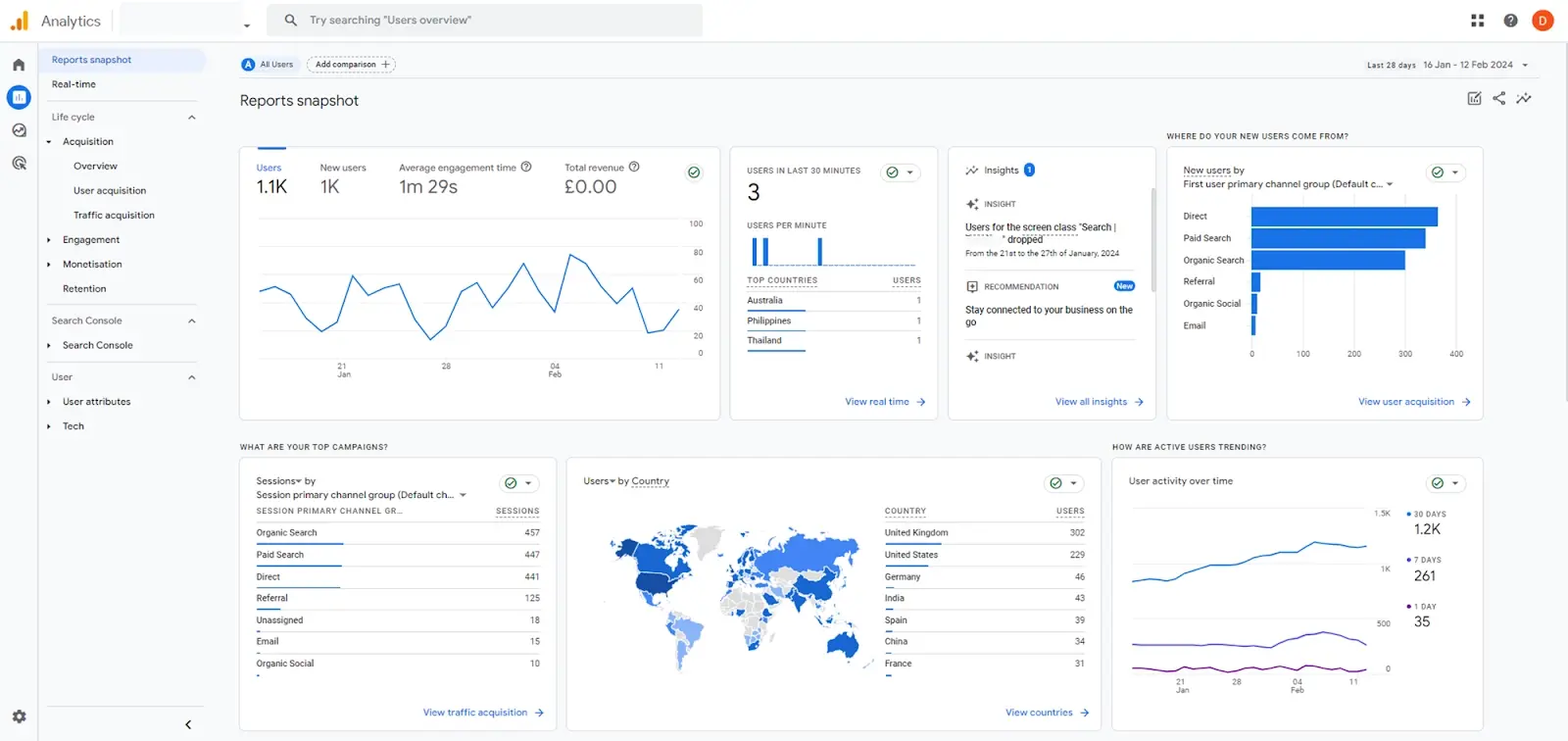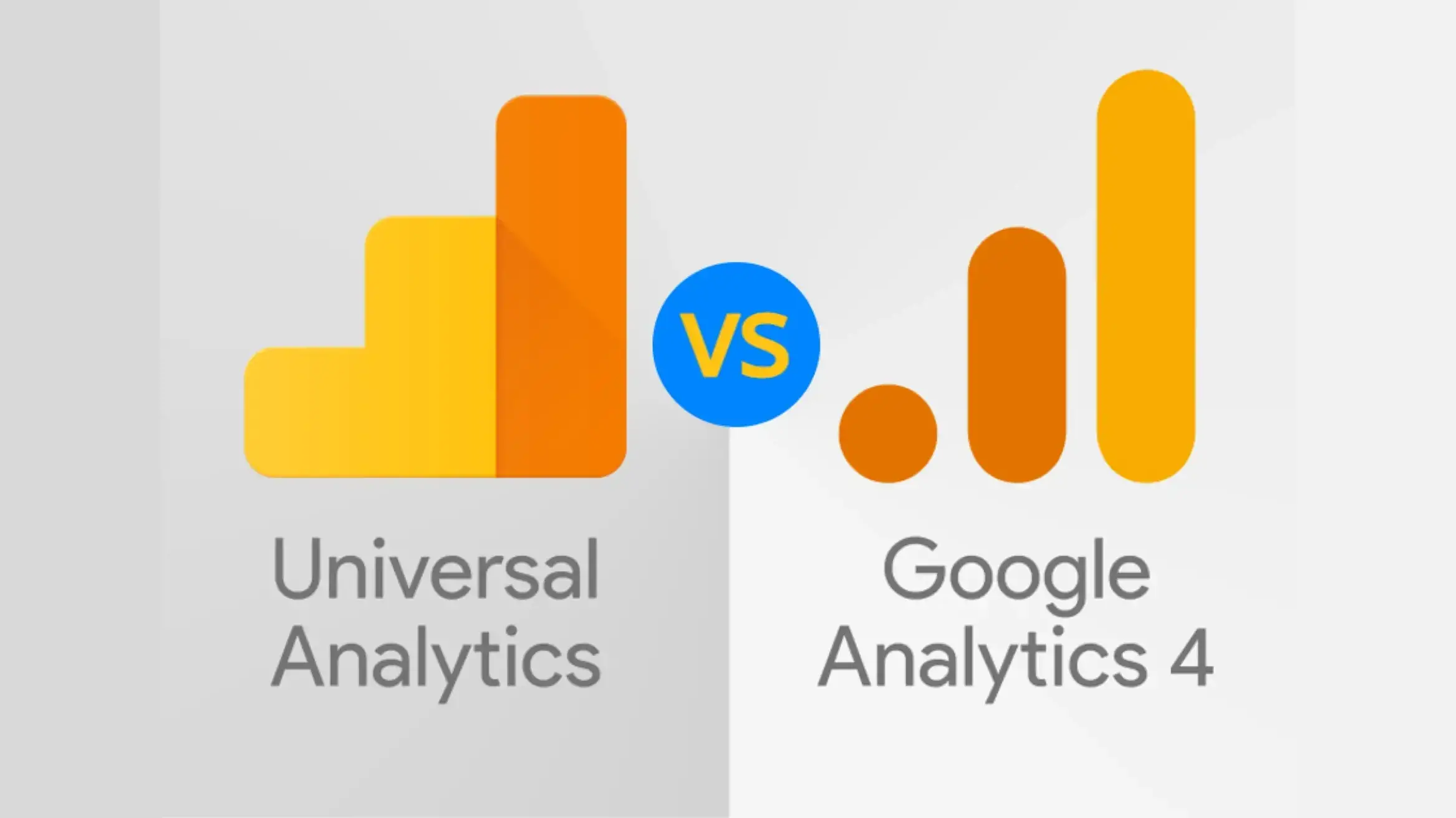Regardless that Universal Analytics no longer is in use, it’s still good to know about the differences between it and the newer Google Analytics 4 (GA4). And why not pit each against one another too? In this article, you’ll see Universal Analytics vs. Google Analytics 4 - pros, cons, and more.
What is Universal Analytics?
Universal Analytics is a version of Google Analytics that was introduced to provide a more flexible and comprehensive approach to tracking and analyzing user interactions across websites and apps.
It allows businesses to gather data on user behavior, such as page views, sessions, and events, and provides insights into how users engage with their digital properties.
Key features of Universal Analytics include:
Cross-Platform Tracking
Custom Dimensions and Metrics
Enhanced E-commerce Tracking
User-ID Tracking
Event Tracking
Cross-Platform Tracking
It enables tracking across multiple devices and platforms, allowing businesses to see how users interact with their content across different devices.
Custom Dimensions and Metrics
Users can create custom dimensions and metrics to track data specific to their needs.
Enhanced E-commerce Tracking
Provides more detailed insights into the e-commerce performance, including product performance and shopping behavior.
User-ID Tracking
Allows for tracking individual users across sessions and devices using a unique ID.
Event Tracking
Offers advanced event tracking to monitor specific interactions on a website or app.
As of July 1, 2023, Google’s Universal Analytics transitioned to Google Analytics 4 (GA4), which is the newer version of their analytics platform. GA4 builds on Universal Analytics and introduces new features and metrics to better track user journeys and improve data insights.
Pros and Cons of Universal Analytics
Pros
Cons
Pros of Universal Analytics
Here are five pros of using Universal Analytics in Google:
Comprehensive Tracking Across Devices
Universal Analytics allows for cross-platform tracking, so you can follow user interactions across different devices and sessions. This provides a more complete view of user behavior and helps in understanding how users engage with your content across various touchpoints.
Customizable Data Collection
You can create custom dimensions and metrics to track specific aspects of user behavior that are unique to your business. This flexibility helps in obtaining tailored insights and making data-driven decisions based on your specific goals.
Enhanced E-commerce Insights
Universal Analytics offers advanced e-commerce tracking capabilities, enabling detailed analysis of product performance, sales data, and customer purchase behavior. This is valuable for optimizing sales strategies and improving the overall shopping experience.
Event Tracking Flexibility
It provides robust event tracking features that allow you to monitor specific interactions on your website or app, such as button clicks, form submissions, or video plays. This helps in understanding user engagement and optimizing user experiences based on their interactions.
User-ID Tracking
The User-ID feature allows for tracking individual users across multiple sessions and devices by assigning a unique ID. This helps in creating a more accurate picture of user behavior and journey, enabling better analysis of user engagement and lifecycle.
Cons of Universal Analytics
Here are five cons of using Universal Analytics in Google:
No Further Support
Universal Analytics was officially phased out on July 1, 2023. Google has since shifted to Google Analytics 4 (GA4), which means that Universal Analytics will no longer receive updates or new features, potentially leaving you with outdated tools and capabilities.
Complexity in Setup
Setting up and configuring Universal Analytics to track custom dimensions, metrics, and events can be complex and time-consuming. It requires a good understanding of the platform and sometimes advanced technical knowledge to implement effectively.
Data Privacy and Compliance Issues
Universal Analytics has faced scrutiny over data privacy and compliance, especially with regulations like GDPR and CCPA. Ensuring compliance can be challenging, and there may be limitations in how data is collected and managed.
Less Effective for Modern Tracking Needs
Universal Analytics may not be as effective for tracking user interactions in the evolving digital landscape, where users interact with content across a variety of devices and platforms. GA4, the newer version, provides more advanced features and better alignment with current tracking needs.
Limited Integration with Other Tools
While Universal Analytics integrates with many Google products, it may have limitations when integrating with other third-party tools and platforms compared to GA4, which has enhanced integration capabilities for a broader range of tools and services.
What is Google Analytics 4?

Google Analytics 4 (GA4) is the latest version of Google's web and app analytics platform, introduced to provide more advanced and flexible tracking capabilities compared to its predecessor, Universal Analytics.
GA4 is designed to offer a more comprehensive view of user interactions across multiple devices and platforms, with a focus on user-centric metrics and privacy.
Key Features of GA4:
Event-Based Tracking
Cross-Platform Measurement
Enhanced Privacy and Compliance
Machine Learning Insights
Improved Reporting and Customization
Integration with Google Ads
Event-Based Tracking
Unlike Universal Analytics, which relies heavily on pageviews and sessions, GA4 uses an event-based model. This allows for more granular tracking of user interactions, such as clicks, scrolls, and video plays, providing deeper insights into user behavior.
Cross-Platform Measurement
GA4 enables tracking across websites and mobile apps in a unified way. This provides a holistic view of user interactions and helps in understanding the complete customer journey across different platforms.
Enhanced Privacy and Compliance
GA4 is designed with privacy and data compliance in mind, incorporating features that help with GDPR and CCPA compliance. It offers more granular data controls and the ability to manage user consent more effectively.
Machine Learning Insights
GA4 leverages machine learning to provide predictive insights and automatic event tracking. This includes features like predictive metrics, which can help identify trends and forecast user behavior.
Improved Reporting and Customization

GA4 offers customizable reports and dashboards, allowing users to focus on metrics and dimensions that are most relevant to their business goals. The interface is designed to be more intuitive, making it easier to analyze data and gain actionable insights.
Integration with Google Ads
GA4 provides better integration with Google Ads, allowing for more effective tracking of advertising performance and user engagement. This integration helps in optimizing ad campaigns and understanding their impact on user behavior.
Pros and Cons of Google Analytics 4
Pros
Cons
Pros of Google Analytics 4
Here are five pros of using Google Analytics 4 (GA4):
Event-Based Tracking
GA4’s event-based model offers more granular and flexible tracking of user interactions compared to the session-based model in Universal Analytics. This allows you to capture a wider range of user actions, such as clicks, video views, and downloads, providing a more detailed view of user behavior.
Cross-Platform Measurement
GA4 provides seamless tracking across websites and mobile apps within a single property. This unified approach allows you to analyze user interactions across different devices and platforms, giving you a complete view of the customer journey.
Enhanced Privacy and Compliance Features
GA4 includes built-in features designed to help with data privacy and compliance, such as user consent management and data retention controls. This is particularly useful for meeting regulations like GDPR and CCPA.
Advanced Machine Learning Insights
GA4 utilizes machine learning to provide predictive insights and automated event tracking. Features like predictive metrics (e.g., purchase probability) and anomaly detection help you identify trends and anticipate user behavior more effectively.
Improved Integration with Google Ads
GA4 offers enhanced integration with Google Ads, allowing for more precise tracking of ad performance and better alignment with marketing goals. This integration helps you understand the impact of your ad campaigns and optimize them based on comprehensive user data.
Cons of Google Analytics 4
Here are five cons of using Google Analytics 4 (GA4):
Learning Curve
GA4 introduces a new interface and event-based tracking model that can be quite different from Universal Analytics. This may require additional time and effort for users to learn and adapt to the new features and reporting structure.
Limited Historical Data
Since GA4 is a new platform, it may not have the same historical data and reporting depth as Universal Analytics. Transitioning to GA4 means that you might lose access to certain historical data or need to maintain Universal Analytics alongside GA4 for comparison purposes.
Complexity in Setup and Configuration
GA4's advanced features, such as custom events and parameters, can be complex to set up and configure. This may require more technical expertise and could lead to a longer implementation period.
Less Mature Ecosystem
As a newer platform, GA4 may have fewer third-party integrations and community resources compared to Universal Analytics. This can make it more challenging to find support or tools that are fully compatible with GA4.
Changes in Reporting and Metrics
GA4 has redesigned reporting and metrics, which may not align directly with what users were accustomed to in Universal Analytics. Some familiar metrics and reports might be absent or require custom configuration, potentially affecting how you analyze and interpret your data.
Universal Analytics vs Google Analytics 4 - In Summary
In summary, Google Analytics 4 (GA4) is generally considered better than Universal Analytics for several reasons: event-based tracking, cross-platform measurement, machine learning, and better data privacy features. While GA4 offers advanced features and improved capabilities, it has a learning curve and may require adjustments from users familiar with Universal Analytics. In the end, GA4 is positioned as the more future-proof option, aligning with modern tracking needs and privacy standards.
Frequently Asked Questions
How can Google Analytics help me enhance my landing page's effectiveness?
Google Analytics provides insights into visitor behavior, allowing you to track metrics like traffic sources, bounce rates, and conversion rates. This helps you optimize your landing page for better performance.
How do analytics from push notifications integrate with overall website analytics?
Integration involves tracking push notification performance alongside website analytics. Connecting data provides a holistic view of user interactions, helping refine strategies and align marketing efforts.
How can incorporating AI into Google Analytics identify link-building opportunities and improve customer engagement?
By using advanced AI tools with Google Analytics, you can analyze complex data to identify link-building opportunities, tailor personalized content, and optimize the user experience. This process, once gruelling for human programmers, becomes more efficient, enhancing customer engagement through customized content strategies.

Nile Flores is a long time professional blogger, as well as WordPress website designer and developer from the St. Louis Metro East. Nile blogs at NileFlores.com, where she’s passionate about helping website owners, whether they’re small business owners or bloggers. She teaches about Blogging, Social Media, Search Engine Optimization, Website Design, and WordPress. Additionally, Nile loves to speak at WordCamps (WordPress conferences) across the United States. When Nile isn’t knee-deep in coding, she’s a proud mom of a college student, and enjoys oil painting, cigar smoking, nail art design, and practicing traditional Okinawan kempo karate.
View all posts by Nile Flores




















